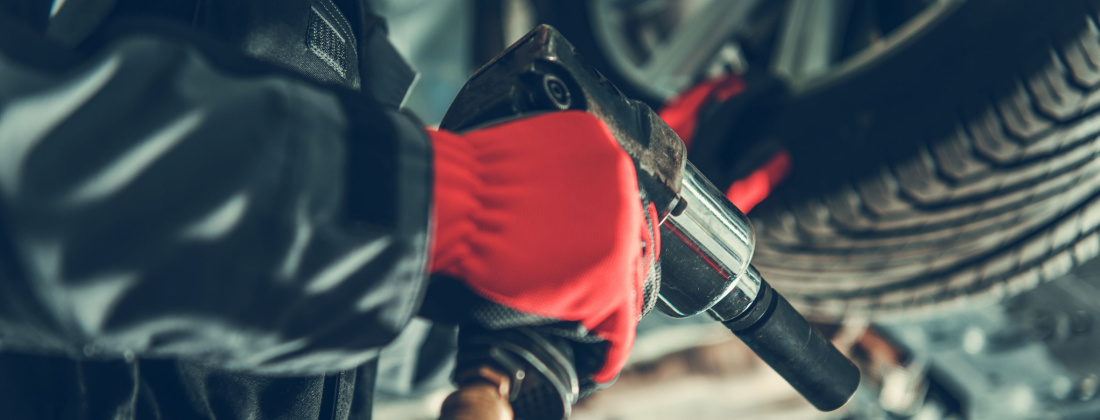
Tire rotation is adjusting the position of each tire on your vehicle regularly. You should rotate your tires every 8,000 kilometers or as the car manufacturer advises. Often people will rotate their tires at the same time that they replace their vehicle’s oil.
Rotating your tires regularly also allows you to inspect them for damage, check their air pressure, get them rebalanced if you notice any vibration, and check their tread depth. Tire rotation assures that your tires wear evenly. It increases the amount of traction your tires have when driving. It’s also an excellent time to check your tires for damage and adjust them if required.
To know more about the Tire rotation process, keep reading this guide.
Tire rotation is an important part of basic tire care for various reasons. First, by rotating your tires regularly, you ensure that wear is distributed equally across all four tires and that their tread life is maximized because each position on your vehicle necessitates a different amount of giving from each tire.
This can result in, more or less, tire wear. Because deep, fresh tire tread is more vulnerable to uneven wear, rotating new tires every 8,000 kilometers is especially vital.
Second, equal tread wear maintains regular tread depth on your tires, which may assist in maintaining consistent traction and handling across all four tires. This will increase turning and braking performance while making your car safer to drive.
Finally, if your vehicle has all-wheel drive, uniformly worn tires reduce the strains on the powertrain, resulting in less wear on costly drive elements.
The best tire rotation sequence for your vehicle will depend on the type of tire you’re using, whether your vehicle is front, rear, all-wheel, or four-wheel drive, whether your tires are directional or non-directional, whether your front and rear tires are the same sizes, and whether you have a full-size spare that can be rotated through as well, as opposed to a provisional spare.
For Tires that are uniform in size and non-directional.
The rearward cross pattern is suggested for 4-wheel, all-wheel, or rear-wheel drive vehicles. The rear tires are relocated to the forward axle and remain on the same side of the vehicle, while the front tires are shifted to opposite sides of the back axle.
All tires are shifted diagonally, which means tires are switched from one axle to the opposite and adjusted from one side to the other. This is recommended for front-wheel drive vehicles such as light trucks and cars.
This is the most common pattern for front-wheel drive vehicles. The front axle tires are moved directly back while the rear tires are moved up diagonally to the opposite side of the front axle.
Tire rotation is a very simple technique. It normally takes no more than 15 minutes. Of course, the mechanism you employ will have an impact. A tire rotation might easily take up to 45 minutes in some circumstances. If the mechanic is busy, it might take up to two hours, though this is unusual.
Uneven tire wear occurs when tires are never rotated. Tires on your vehicle’s front axle wear differently than those on the rear axle, making rotation essential for even wear. This allows the tires to serve the vehicle’s back and front.
A car with regularly rotated tires handles better, providing a safer ride. It also makes for a lot smoother ride!
Uneven tire wear causes greater vehicle vibration, which is notably visible in the steering wheel. Uneven tire wear contributes to increased road noise. Both of these concerns are alleviated by rotating tires regularly.
In general, rotating your tires on a regular basis can help you save a lot of money. You get better gas mileage, but you can also prevent having to make pricey mechanical repairs because of the worn-out or uneven tire tread.
If you are seeking a cost-effective tire rotation service for your vehicle, then you should book an appointment at your local Ward Tirecraft Lloydminster, in Lloydminster. Our team of experienced service advisors and technicians will ensure that your tires are properly rotated to minimize irregular tire wear and keep you safe on the road.